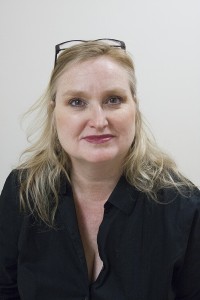In the past week I’ve had a number of people, including the chair of The North Wind’s Board of Directors and the president of the university, ask me: “What exactly do you do at The North Wind?”

Sometimes it’s easier for me to tell people what I don’t do:
I don’t censor.
I don’t proof read.
I don’t edit.
I don’t fact check.
I don’t read every page before it’s printed.
(Really? Did you think that? It’s a 16-page paper.)
The editor of the paper decides what stories I weigh in on. Usually she chooses the most complex, most controversial, but not always.
In some ways, being the newspaper adviser is like being the consigliere in The Godfather. I’m not the Don. I don’t make the heavy decisions. I just give my advice, my counsel.
But I’m also there, available by text or phone 24/7.
I am the one they call in the middle of the night when the police are trying to stop them from photographing. I am the one they call when they’ve been stymied from getting public documents. I’m the one they call when they get in sticky situations personally and professionally.
Most of the editors and reporters at The North Wind are not journalism students. They don’t have the background or the training that most beginning reporters have. So I’m there to fill in the gaps.
Much of my job is being there. I’m there on production night and the day after to offer up my critique of the paper and suggestions for the future.
Of course, it’s up to the student editors and reporters if they want to take that advice, a caveat I remind them of religiously. They usually laugh, as if they’d be silly to dismiss me. But there are times they do overrule me. And that’s their right.
There are big reasons why I don’t have decision-making powers. One is called the First Amendment. The newspaper belongs to the students. It’s student-run and student-funded. As a university employee, if I were to exert my will over a story, it could be seen as a prior restraint—a form of censorship. My role is more of resident expert, someone who knows media law, ethics, someone who has worked at multiple newspapers. I’m here now but I’ve been there.
I’ve been yelled at by Chicago Mayor Daley on camera, threatened by a madman with a gun, hit on by a presidential candidate, debated with Bill O’Reilly on live TV and beaten by a homeless man across from the White House. I’ve covered the fall of the Berlin Wall and the Haiti earthquake. I’ve interviewed more families of homicide victims than I want to remember.
And I bring those hard-earned lessons from the newsroom. I try to channel the crusty city editors I had as a cub reporter. They are important figures in any young reporter’s life.
They don’t hold your hand. They don’t tell you they love you and you’re fabulous and every word you write is precious. (Did you really think that?) They mostly point out what you didn’t do, how your story lacks luster (or just sucks) and how you need more sources.
They challenge you to articulate why something should run or not. I don’t yell at my students the way those city editors yelled at me, but I am just as blunt.
The newsroom is not a kind place. I try to prepare my students for what they can expect in newsrooms out there. I tell them when they did a good job, but I also tell them when they were sloppy and inaccurate.
My comments on stories are typically candid: “This is boring.” “This is confusing.” “You’ve buried your lead.” “This doesn’t tell me anything I wouldn’t already know from being alive.” “Have you been living under a rock?” “Oh, that’s funny.” “Love it.” “Skip it.” “This makes me laugh.” “Violins are shrieking now…”
You get the picture. They are not coddled at The North Wind because they will not be coddled in the real world. I am also not their mother. But I am their supporter. And I will continue to argue for their press freedoms. That is my job.






















